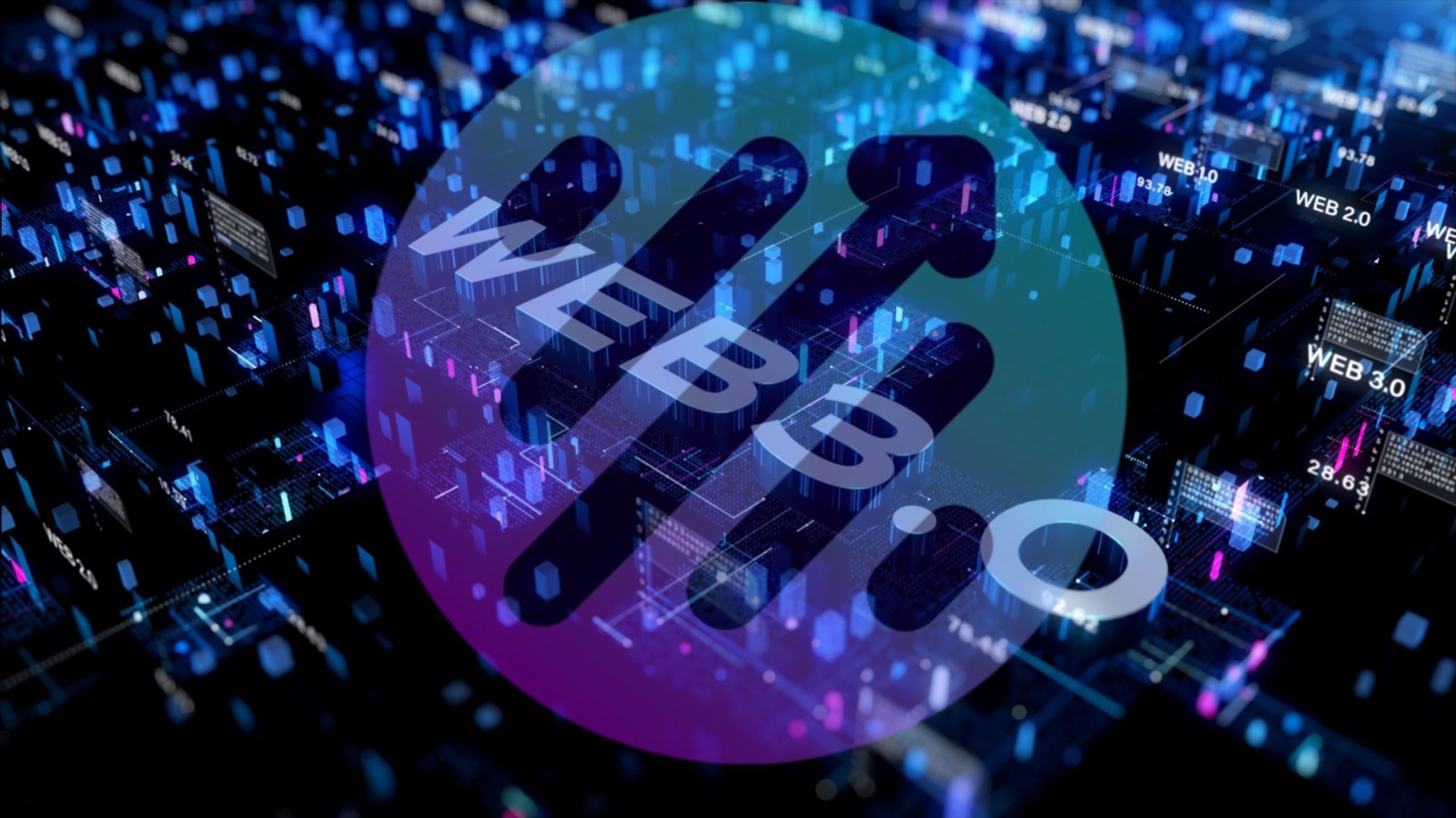
In this article, we embark on a journey to explore the biggest Web3 companies that have emerged as key players, wielding remarkable market capitalization and achieving widespread user adoption
Introduction to Web3 and Its Impact on Business

The world of technology is in a constant state of evolution, and with each passing year, new innovations emerge that reshape the way we interact with information, conduct business, and communicate with one another.
One of the most transformative developments in recent years has been the advent of Web3, a revolutionary concept that promises to disrupt traditional business models and unlock unprecedented opportunities for innovation and decentralization.
Web3 is not just an iteration of the internet but a complete paradigm shift. It is the next evolutionary step in the evolution of the internet, building upon the principles of its predecessors, Web1, and Web2. Unlike the centralized nature of Web1 and the user-centric approach of Web2, Web3 is founded on the principles of decentralization, trust, and user ownership.
At the core of Web3’s transformative power lies the blockchain technology. The blockchain is a decentralized and distributed ledger that records transactions in a secure and immutable manner.
It removes the need for intermediaries, such as banks or other financial institutions, and instead relies on a network of nodes to validate and confirm transactions. This makes the system more transparent, efficient, and resistant to censorship and fraud.
With the rise of blockchain technology, smart contracts have become a defining feature of Web3. Smart contracts are self-executing contracts with predefined rules written directly into their code.
They automatically execute when the conditions are met, eliminating the need for third-party intermediaries. This feature not only reduces transaction costs but also ensures greater trust and reliability in business dealings.
The impact of Web3 on businesses is far-reaching and multifaceted. From finance to supply chain management, from healthcare to real estate, industries across the board are being revolutionized by this new paradigm. The ability to create decentralized applications (DApps) opens up possibilities for new business models and services that were previously inconceivable.
One of the key aspects of Web3 that has captured the attention of businesses worldwide is its potential to democratize finance through Initial Coin Offerings (ICOs) and tokenization. Biggest web3 companies use ICOs to allow startups to raise capital by issuing tokens to investors in exchange for cryptocurrencies.
This method of crowdfunding bypasses traditional financial institutions and regulatory hurdles, enabling entrepreneurs from all corners of the globe to access funding for their ventures.
Moreover, tokenization has emerged as a powerful tool for unlocking liquidity in traditionally illiquid assets such as real estate and art. By representing assets as digital tokens on the blockchain, these assets can be fractionalized, allowing investors of all sizes to participate in lucrative markets that were once reserved for a select few.
The rise of Web3 has also seen the emergence of decentralized finance (DeFi) protocols, which are disrupting the traditional financial system. DeFi platforms, the biggest web3 companies, provide services such as lending, borrowing, and trading without the need for intermediaries, enabling users to have complete control over their funds.
The total value locked in DeFi protocols has surged exponentially, attracting investors seeking higher yields and financial autonomy. In addition to finance, the supply chain industry is undergoing a transformation thanks to Web3.
By utilizing blockchain technology, companies can achieve greater transparency and traceability in their supply chains, enabling them to verify the authenticity and origin of products. This is especially crucial in industries like food and luxury goods, where counterfeiting and fraud are significant challenges.
Furthermore, the healthcare sector is leveraging Web3 to improve patient data management and interoperability. Biggest web3 companies in healthcare store patient records on a decentralized and secure blockchain, ensuring the privacy and integrity of sensitive medical information while facilitating seamless sharing of data between authorized parties.
As Web3 continues to gain momentum, more significant companies are recognizing its potential and investing in its development. Tech giants like Google, Facebook, and Amazon are exploring ways to incorporate blockchain and decentralized technologies into their existing platforms, envisioning a more open and user-centric internet.
Web3 is more than just a technological evolution; it is a paradigm shift that empowers individuals and businesses alike. Its core principles of decentralization, transparency, and user ownership are reshaping industries and opening up new avenues for innovation and collaboration.
The biggest web3 companies are not just embracing change; they are pioneering it, laying the foundation for a future where trust, security, and ownership are at the forefront of the digital landscape. Whether in finance, supply chain, healthcare, or beyond, Web3 is rewriting the rules of business and unlocking a world of possibilities.
Read More: The Top Web3 Analytics Tools used in 2023 You Didn’t Know About
The Biggest Web3 Companies by Market Capitalization and Adoption

Web3, the next evolution of the internet, has brought about a paradigm shift in how companies operate, interact, and deliver value to users. By leveraging decentralized technologies like blockchain and smart contracts, Web3 companies have revolutionized traditional business models and opened up a world of new possibilities.
We would delve into the world of Web3 and explore the biggest web3 companies that have emerged as market leaders in terms of market capitalization and widespread adoption. From decentralized finance (DeFi) to non-fungible tokens (NFTs), these companies are at the forefront of driving innovation and reshaping industries across the globe.
- Uniswap – Democratizing Decentralized Exchanges
- Chainlink – Bridging the gap between smart contracts and real-world data
- Aave – Pioneering decentralized lending and borrowing
- Axie Infinity – Gaming on Blockchain
- CryptoKitties – NFT Pioneers
- MakerDAO – Empowering Stablecoin Creation.
1. Uniswap – Democratizing Decentralized Exchanges
Uniswap is undoubtedly one of the biggest web3 companies, making its mark as a decentralized exchange (DEX) protocol. Operating on the Ethereum blockchain, Uniswap facilitates peer-to-peer token swaps through its automated liquidity provision.
By eliminating the need for intermediaries and enabling users to trade directly from their wallets, Uniswap has democratically transformed the world of crypto trading. Its user-friendly interface and efficient algorithm have catapulted it to the top, boasting significant trading volumes and a soaring market capitalization.
2. Chainlink – Bridging the Gap between Smart Contracts and Real-World Data
Chainlink has emerged as a leading oracle provider in the web3 ecosystem, bridging the gap between smart contracts and external data sources. Smart contracts, while powerful, lack access to real-world information, and this is where Chainlink comes into play.
By providing secure and reliable data feeds to smart contracts, Chainlink ensures that they can interact with real-world events, facilitating the execution of complex and autonomous operations. As the adoption of smart contracts grows, Chainlink’s importance has become paramount, contributing to its rapid rise in market capitalization.
3. Aave – Pioneering Decentralized Lending and Borrowing
Aave, an open-source DeFi protocol, has revolutionized the lending and borrowing landscape. By enabling users to lend and borrow various cryptocurrencies without the need for a centralized intermediary, Aave has introduced a new era of financial freedom and inclusivity.
Users can earn interest on their deposits and access credit seamlessly, all while retaining full control of their assets. Aave’s innovation has driven its popularity, attracting millions of users and catapulting its market capitalization to impressive heights.
4. Axie Infinity – Gaming on the Blockchain
Axie Infinity has broken the barriers between gaming and blockchain, pioneering the play-to-earn model. Built on the Ethereum blockchain, Axie Infinity allows players to collect, breed, and battle fantasy creatures called Axies.
What sets Axie Infinity apart is the ability for players to earn cryptocurrencies by participating in the game. This innovative incentive mechanism has attracted a massive community of players seeking not only entertainment but also a new source of income. The game’s popularity has translated into significant market capitalization growth, making Axie Infinity one of the biggest web3 companies.
5. CryptoKitties – NFT Pioneers
CryptoKitties, often regarded as the trailblazers of NFTs, took the world by storm with their collectible digital cats. Each CryptoKitty is a unique, non-fungible token that can be bought, sold, and bred on the Ethereum blockchain.
This seemingly simple concept opened the floodgates for the NFT craze, transforming the way we perceive ownership and digital assets. Although numerous NFT projects have emerged since CryptoKitties’ debut, their impact on the market and the adoption of NFTs remains profound.
6. MakerDAO – Empowering Stablecoin Creation
MakerDAO has played a pivotal role in the development of decentralized stablecoins, a critical component of the DeFi ecosystem. MakerDAO’s DAI stablecoin is created through the over-collateralization of other cryptocurrencies, ensuring its value remains stable.
This stability has positioned DAI as one of the most widely used stablecoins in DeFi applications, fostering the growth of the entire DeFi space. MakerDAO’s contribution to the financial infrastructure of the web3 world has secured its position as one of the biggest web3 companies.
The web3 revolution is in full swing, and these biggest web3 companies are leading the charge towards a decentralized future. Through innovative solutions and disruptive technologies, they have made a lasting impact on various sectors, from finance to gaming and beyond.
As market capitalization and adoption continue to soar, these companies are emblematic of the transformative power of web3. With countless other startups and projects emerging, the web3 landscape is sure to witness more groundbreaking developments in the days to come. As we journey into this new era of the internet, the biggest web3 companies will undoubtedly shape the digital landscape for years to come.
Read More: How To Make Money With Web3 in 2023
Emerging Web3 Startups and Niche Players

The advent of Web3 technologies has opened up a world of possibilities, empowering individuals and companies to create decentralized applications, tokenize assets, and revolutionize traditional industries.
While the spotlight often shines on the biggest web3 companies that have made significant strides in the decentralized ecosystem, it’s equally important to explore the realm of emerging startups and niche players that are making waves in this rapidly evolving landscape.
Web3 startups are those pioneering entities that are leveraging blockchain, smart contracts, and decentralized networks to bring innovative solutions to various sectors. These companies embody the true spirit of decentralization, often disrupting established industries with new ideas and creative approaches.
One notable area where emerging web3 startups are thriving is in decentralized finance (DeFi). DeFi has emerged as one of the most transformative use cases of blockchain technology, providing permissionless access to financial services and eliminating intermediaries.
Several startups have entered the DeFi space, offering products like decentralized exchanges (DEXs), lending and borrowing protocols, stablecoins, and yield farming platforms.
A prominent example of an emerging DeFi startup is “DeFiSwap.” This decentralized exchange platform enables users to trade a wide range of tokens without the need for a centralized intermediary. By facilitating peer-to-peer transactions, DeFiSwap empowers users with control over their funds while also promoting transparency and security.
Web3 startups are not solely confined to the financial sector. They are exploring applications in supply chain management, healthcare, gaming, and more. One exciting niche gaining traction is “NFT Galleries.” Non-fungible tokens (NFTs) have become a sensation in the digital art and collectibles space, and NFT Galleries aim to provide a virtual space for artists to showcase their unique creations.
In the world of NFT Galleries, “ArtDex” is a rising star. ArtDex is an innovative platform that allows artists to mint their digital art as NFTs and showcase them in a virtual gallery accessible by art enthusiasts worldwide. This disruptive approach to art curation is challenging traditional galleries and auction houses, democratizing the art world, and providing a direct connection between artists and their audience.
Another intriguing niche within the web3 startup landscape is “Decentralized Autonomous Organizations” or DAOs. DAOs are organizations governed by smart contracts and decentralized decision-making, allowing members to collectively manage funds and vote on proposals.
These novel entities have the potential to reshape traditional corporate structures and enable new forms of collaboration and community-driven initiatives.
One such pioneering DAO is “ClimateDAO.” Recognizing the urgency of climate change, ClimateDAO brings together individuals, organizations, and climate activists to collectively fund and support eco-friendly projects.
By leveraging blockchain’s transparency and traceability, ClimateDAO aims to address environmental challenges and promote sustainable initiatives worldwide.
Despite the enthusiasm surrounding emerging web3 startups, challenges abound. The decentralized nature of these companies often presents regulatory complexities, interoperability hurdles, and scalability concerns. Additionally, the rapidly evolving nature of blockchain technology requires startups to stay adaptable and innovative to remain competitive.
However, the potential rewards for successful web3 startups are immense. As the web3 ecosystem continues to grow and mature, these startups have the opportunity to become the next big players, transforming industries and driving the adoption of decentralized technologies.
Investors are also taking notice of the promising potential in web3 startups, providing funding and support for these ventures. Venture capital firms and angel investors are actively seeking projects that demonstrate a strong use case, a solid development team, and a vision to disrupt existing markets.
Conclusion
In conclusion, while the biggest web3 companies continue to lead the decentralized revolution, the contributions of emerging startups and niche players should not be overlooked.
These pioneers are driving innovation, exploring new applications, and pushing the boundaries of what’s possible in the web3 space. As they continue to refine their offerings and navigate the challenges ahead, their impact on the future of decentralized technology cannot be underestimated.
For more exciting information follow Dipprofit on threads, via the link below.